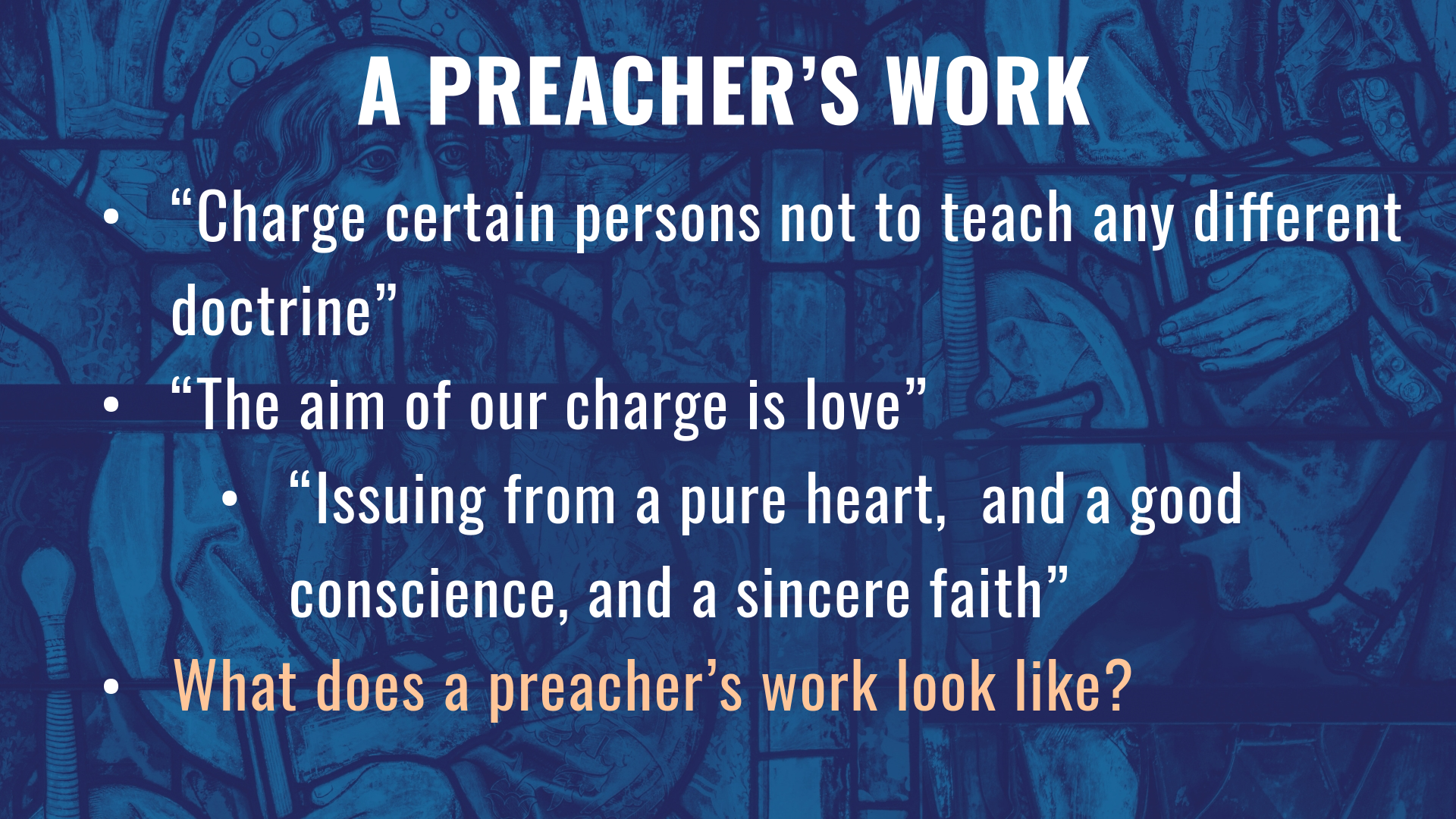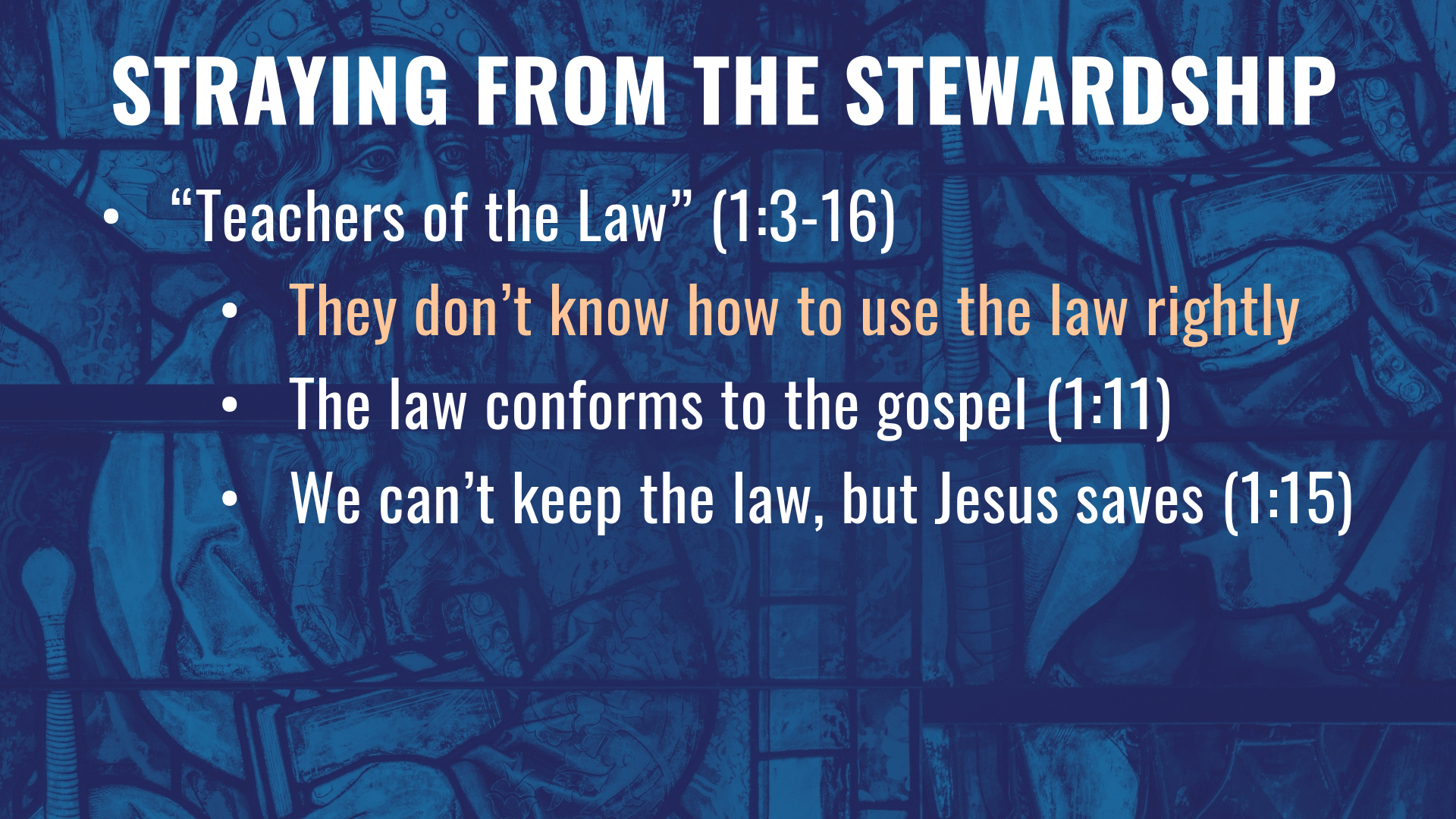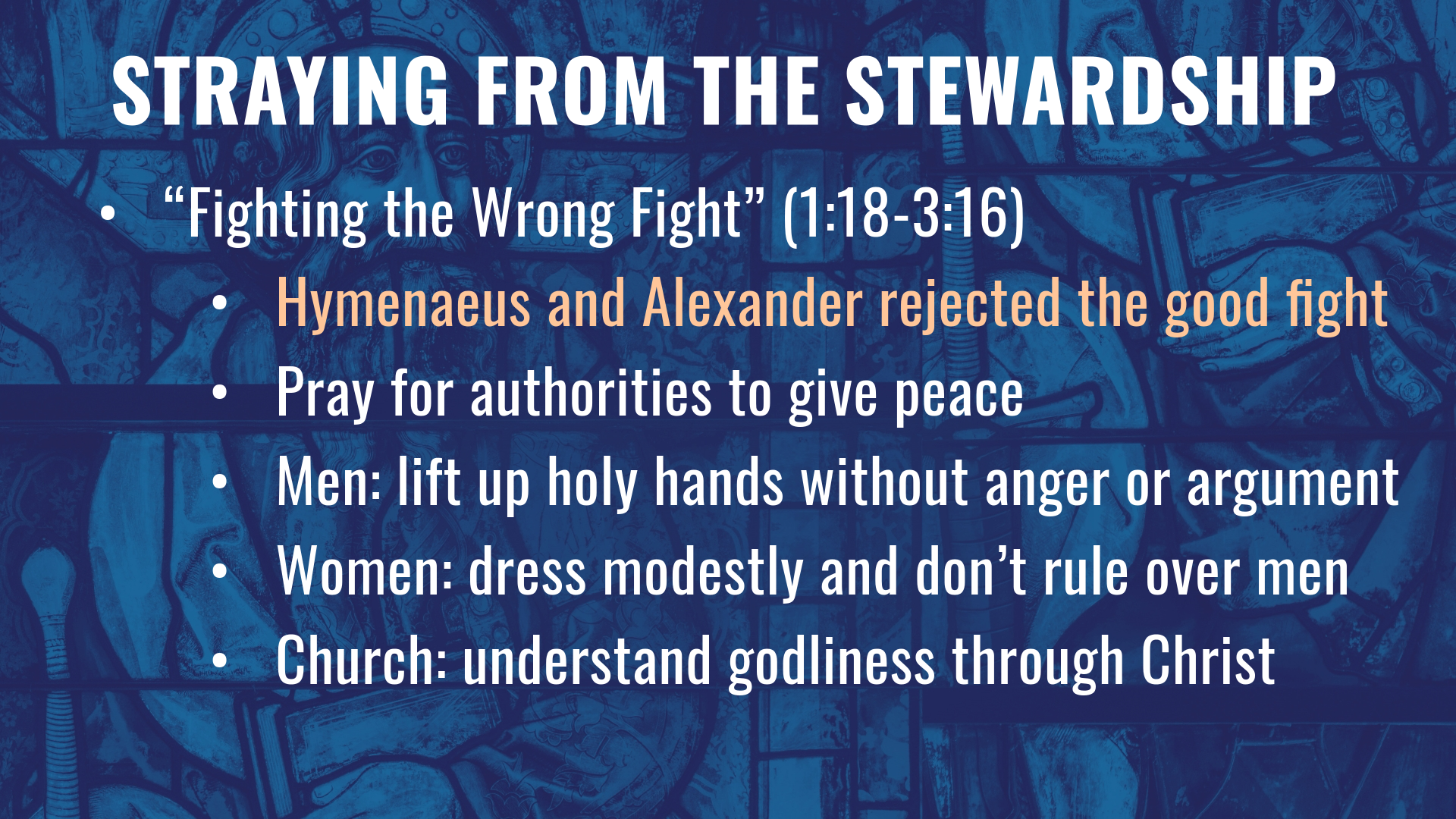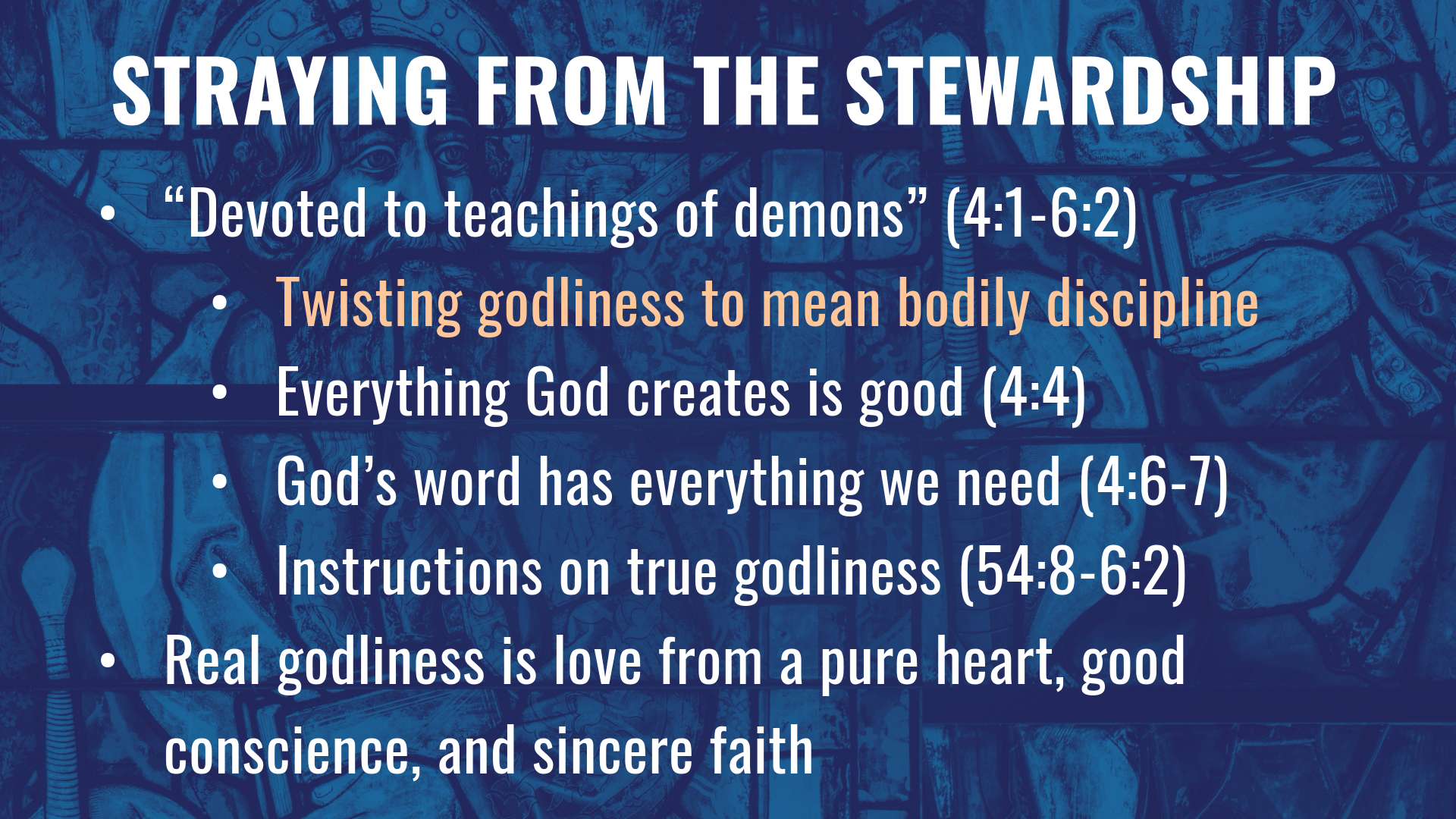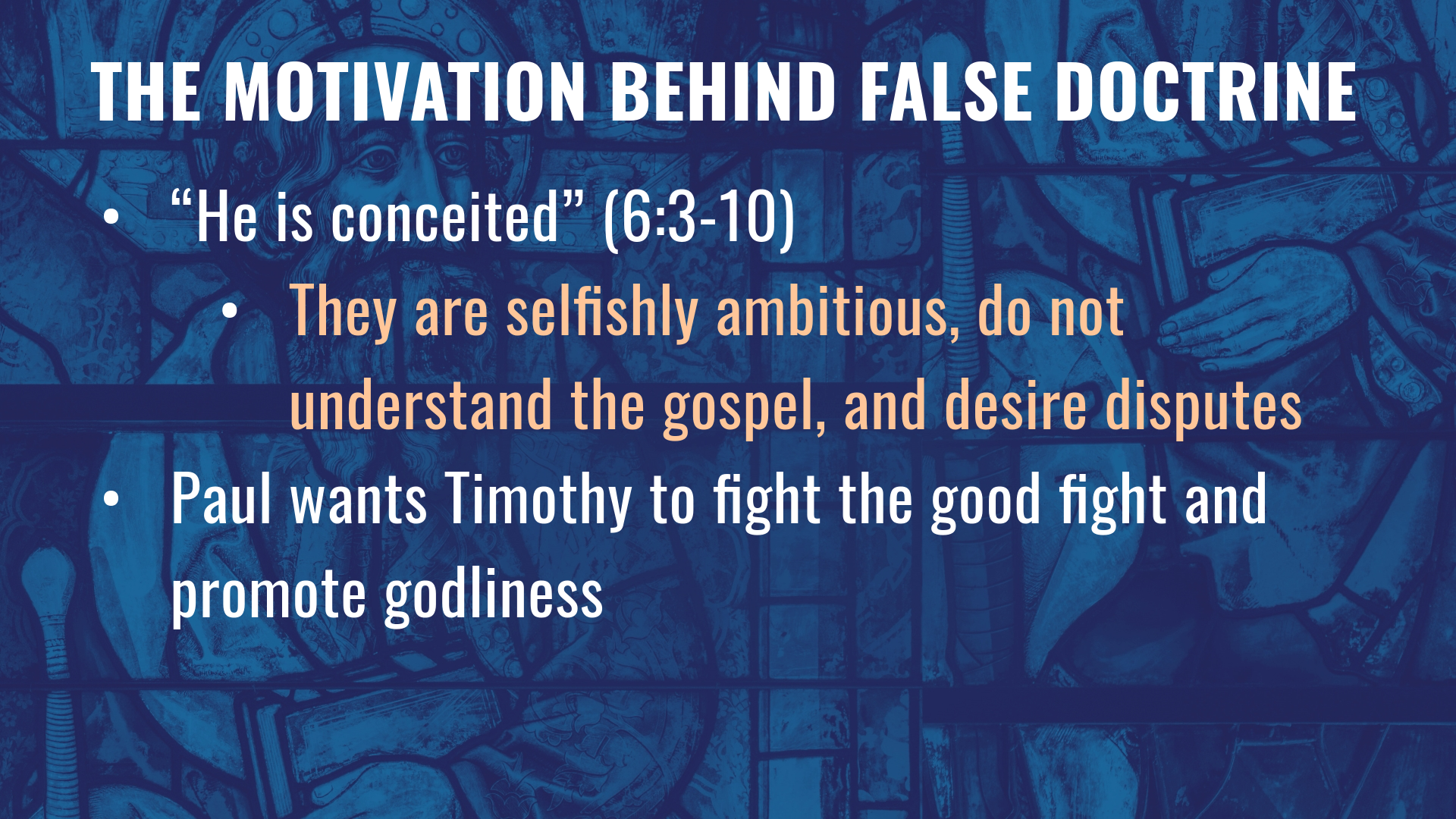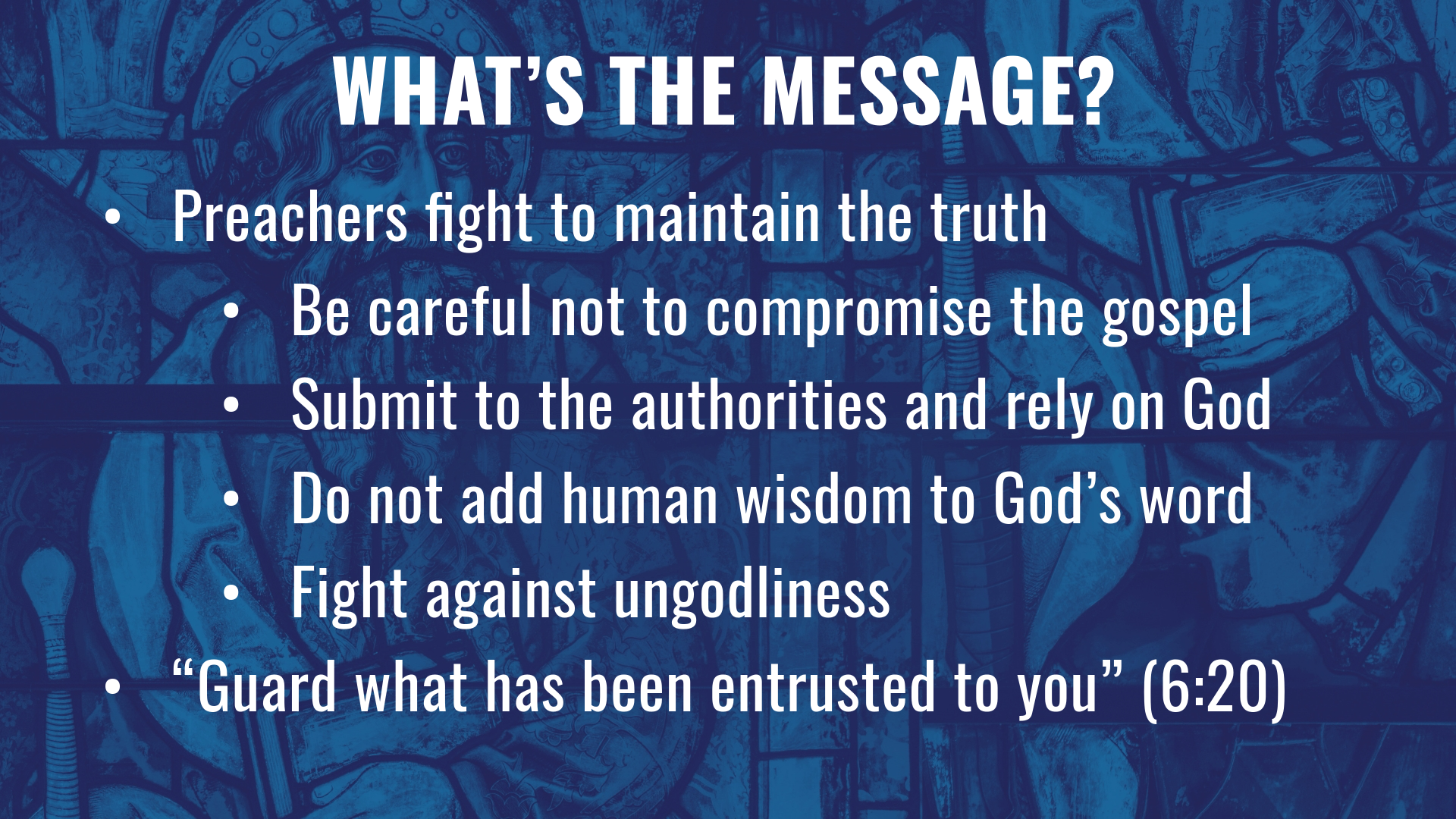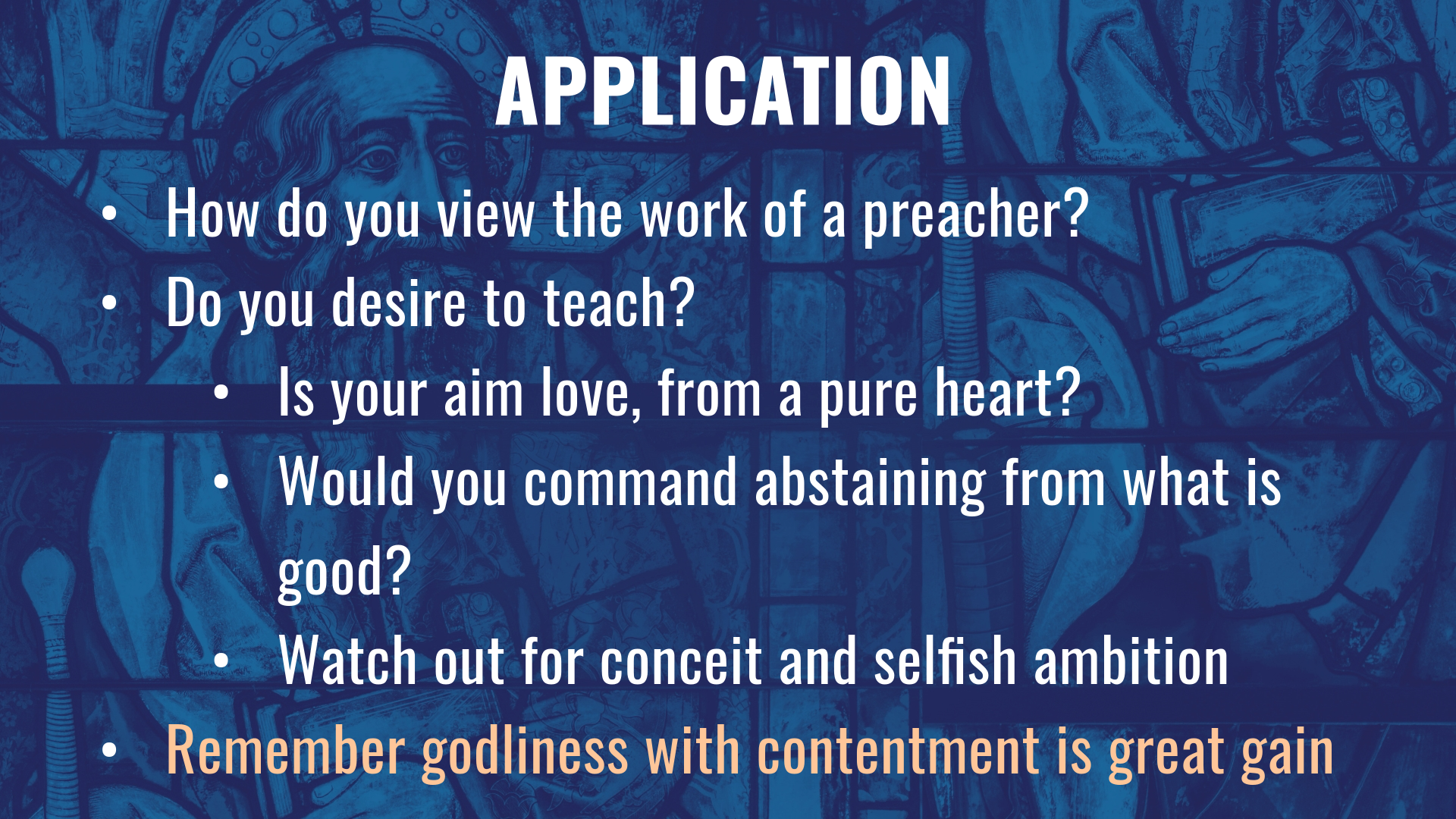False Doctrine (1 Timothy)
What is the work of a preacher/evangelist? We often think preachers need to spend their time visiting with members and running around fulfilling basic tasks for the church. Many today call a preacher a "pastor," and they are considered head over the congregation. This pastor often does everything for smaller churches, and he leads a group of pastors in bigger churches. He is the guy who oversees all of the decision-making or makes the decisions. He is the shepherd, and the rest of the congregation is the flock. Did you know that the office of pastor and preacher are two different things? The best explanation of what a preacher is and does can be found in 1 Timothy.
This letter begins with Paul's mission statement.
1 Timothy 1:3--5 (ESV) --- 3 As I urged you when I was going to Macedonia, remain at Ephesus so that you may charge certain persons not to teach any different doctrine, 4 nor to devote themselves to myths and endless genealogies, which promote speculations rather than the stewardship from God that is by faith. 5 The aim of our charge is love that issues from a pure heart and a good conscience and a sincere faith.
First, he gives a personal note. He left Timothy in Ephesus to charge people to teach no other doctrine. Those who teach ought to align themselves with the teachings of the apostles. But he also gives a mission statement. He says that the aim of a preacher is "to create love that comes out of a pure heart, a good conscience, and a sincere faith." That's his goal in preaching and teaching the gospel. He works so believers will love God with all their heart, soul, mind, and strength. He wants them to love their neighbor as themselves. That is a quick summary of the work of a preacher.
False Doctrines
Paul points out to Timothy his need to fight against those who teach a different doctrine. He makes comments about different doctrines throughout this letter, so let's break the letter up into three groups based on the false doctrines he speaks about.
Teachers of the Law (1:3-17)
First, he talks about those who don't understand the work of the law and the importance of grace.
1 Timothy 1:5--7 (ESV) --- 5 The aim of our charge is love that issues from a pure heart and a good conscience and a sincere faith. 6 Certain persons, by swerving from these, have wandered away into vain discussion, 7 desiring to be teachers of the law, without understanding either what they are saying or the things about which they make confident assertions.
Notice that Paul starts with a description of the goal. The goal is love. Every teacher's goal is to increase the love we all have toward God and toward one another. That fulfills the two greatest commands. These men desire to be teachers of the law, but they don't know how to use it rightly. They don't understand how the law conforms to the gospel and amplifies its effect on the hearts of men.
Do you know anyone who holds the law up as the standard by which God will judge Christians? Have you ever felt that way? Is that right? Paul says that they are making the wrong use of the law. Verse 8-9 explain this for us.
Response
1 Timothy 1:8--9 (ESV) --- 8 Now we know that the law is good, if one uses it lawfully, 9 understanding this, that the law is not laid down for the just but for the lawless and disobedient, for the ungodly and sinners, for the unholy and profane, for those who strike their fathers and mothers, for murderers,
How does Paul respond to people who don't understand the law and make incorrect applications? First, he tells them that the law conforms to the gospel, but then, he shows them how.
1 Timothy 1:12--13 (ESV) --- 12 I thank him who has given me strength, Christ Jesus our Lord, because he judged me faithful, appointing me to his service, 13 though formerly I was a blasphemer, persecutor, and insolent opponent. But I received mercy because I had acted ignorantly in unbelief,
Paul tells Timothy that Paul didn't measure up to the standard, but God's grace made way for him to have a good conscience. The law convinced Paul that he was a sinner and helped him repent. It gave him a dirty conscience by pointing out his blasphemy and pride, but he doesn't rely on the law for righteousness. Jesus gives him that.
1 Timothy 1:15 (ESV) --- 15 The saying is trustworthy and deserving of full acceptance, that Christ Jesus came into the world to save sinners, of whom I am the foremost.
Jesus has demonstrated extraordinary patience toward Paul, and that is an example for all mankind to feel secure in. Somewhere along the way, men will lose sight of the goal and focus on keeping rules or following a checklist to be approved by God. That's not love that issues from a pure heart, a clean conscience, and a sincere faith. Reminding them of our need for grace is how he defeats these doctrines.
Fighting The Wrong Fight (1:18-3:16)
Then, Paul goes into another problem. Some have given up a good conscience and a sincere faith.
1 Timothy 1:18--20 (ESV) --- 18 This charge I entrust to you, Timothy, my child, in accordance with the prophecies previously made about you, that by them you may wage the good warfare, 19 holding faith and a good conscience. By rejecting this, some have made shipwreck of their faith, 20 among whom are Hymenaeus and Alexander, whom I have handed over to Satan that they may learn not to blaspheme.
This text reveals some false teachers by name. Hymenaeus and Alexander have rejected faith and a good conscience. He says that he has handed them over to Satan to learn not to blaspheme. I'm not sure what the details are, but it doesn't sound good. If the verses that follow argue against their false teaching, they must have lifted themselves against the authorities of the day. How many today have started considering how they might fight against the government?
1. Pray for rulers (2:1-7). Men should focus on praying for God to give us peace and tranquility through our kings or governors. These prayers will promote godliness. We must ask God to work in our leaders' hearts.
2. Submit to Authority (2:8-15). Men need to stop getting angry and argumentative. Women need to stop looking like ungodly women and rule over men. This submissive attitude promotes godliness.
3. Respectable Elders & Deacons (3:1-13). The third thing Paul wants to see is men stepping up into their roles as elders and deacons. They need to exemplify proper godly behavior. If we desire righteousness to increase in our community and country, it all starts with the church's leaders.
4. Remember Jesus (3:14-16). Finally, Paul says that the mystery of godliness is great! That means it is too big for us to wrap our heads around fully. Jesus came to show it to us, and we are constantly striving to immolate him. It's not about keeping the law anymore. It's about being like Christ.
Adding To The Law (4:1-7)
The second twisted doctrine we read about in this letter is found beginning in Chapter 4. These different doctrines are about those who make up laws and misunderstand the character of God.
1 Timothy 4:1--5 (ESV) --- 1 Now the Spirit expressly says that in later times some will depart from the faith by devoting themselves to deceitful spirits and teachings of demons, 2 through the insincerity of liars whose consciences are seared, 3 who forbid marriage and require abstinence from foods that God created to be received with thanksgiving by those who believe and know the truth. 4 For everything created by God is good, and nothing is to be rejected if it is received with thanksgiving, 5 for it is made holy by the word of God and prayer.
These men are making things up as they go. Instead of sticking to the law, they make up things that have nothing to do with it. They forbid people to marry and command people not to eat certain foods. He says that the Holy Spirit expressly foretold people would do this. They have departed from the faith and devoted themselves to deceitful spirits and the teachings of demons. Instead of sincere faith, they are liars whose consciences are seared.
Response
The answer to this false teaching is remembering that God created these things. If they are evil in themselves, God would have to be evil. God did not create something evil. Marriage is good when it is done without adultery. All foods are good to eat so long as you aren't worshipping idols. Paul wants men to understand that everything can be good if received with reverence and submission to God's will. Not only that but we ought to enjoy these things with thankful hearts.
If we don't become more like God through creating additional laws that seem holy, what do we need to do? It's simple.
1. Hold Up God's Word. First, we need to hold up God's word as the source of godliness.
1 Timothy 4:6 (ESV) --- 6 If you put these things before the brothers, you will be a good servant of Christ Jesus, being trained in the words of the faith and of the good doctrine that you have followed.
The first thing we need to do is listen to what God has told us. We follow the words of faith and the excellent teaching of the apostles and prophets. We won't become like God by making things up on our own. We become like God by studying his word and submitting to it.
2. Training in Godliness. The second thing we need to become more like God is to train ourselves in godliness. Instead of spending all our time trying to come up with a list of rules, we need to focus on applying what we know. Paul wants to build Timothy up and instruct him on godliness at this point in the letter. In the rest of Chapter 4, Paul tells Timothy to command and teach these things and live them out.
Chapters 5 and 6 instruct Timothy on how to remain godly when dealing with different issues in the church. He walks him through specific areas where godliness might be challenging to navigate. These teachings are based on God's will for there to be love and godliness in the church. He doesn't make these up. He uses principles and ideas found throughout scripture, but he also has been inspired to write these words by the Holy Spirit. He talks about widows, elders, masters, and those who are rich.
3. Stop Being Conceited. The final solution we read about is to avoid the trap of greed. People who preach false doctrines are motivated by one thing, selfish ambition. They want to be well thought of or rich.
1 Timothy 6:3--5 (ESV) --- 3 If anyone teaches a different doctrine and does not agree with the sound words of our Lord Jesus Christ and the teaching that accords with godliness, 4 he is puffed up with conceit and understands nothing. He has an unhealthy craving for controversy and for quarrels about words, which produce envy, dissension, slander, evil suspicions, 5 and constant friction among people who are depraved in mind and deprived of the truth, imagining that godliness is a means of gain.
Men who promote anything other than godliness based on the life of Jesus and the law conformed to the gospel are conceited. They are seeking gain. Magnifying their knowledge will get them clout and power. These men are failing to submit to the wisdom of God in Christ. They lack humility, and their arguments will lead to division instead of greater godliness.
Application
The words of this letter are written to Timothy, but they need to be heard and accepted by all. Some false teachers do not know what they are talking about. They want to be like God by teaching the law or by adding to the law. We have to see through that and understand what genuine godliness looks like. Furthermore, we need to devote our lives to love flowing out of a pure heart, a clean conscience, and a sincere faith.


